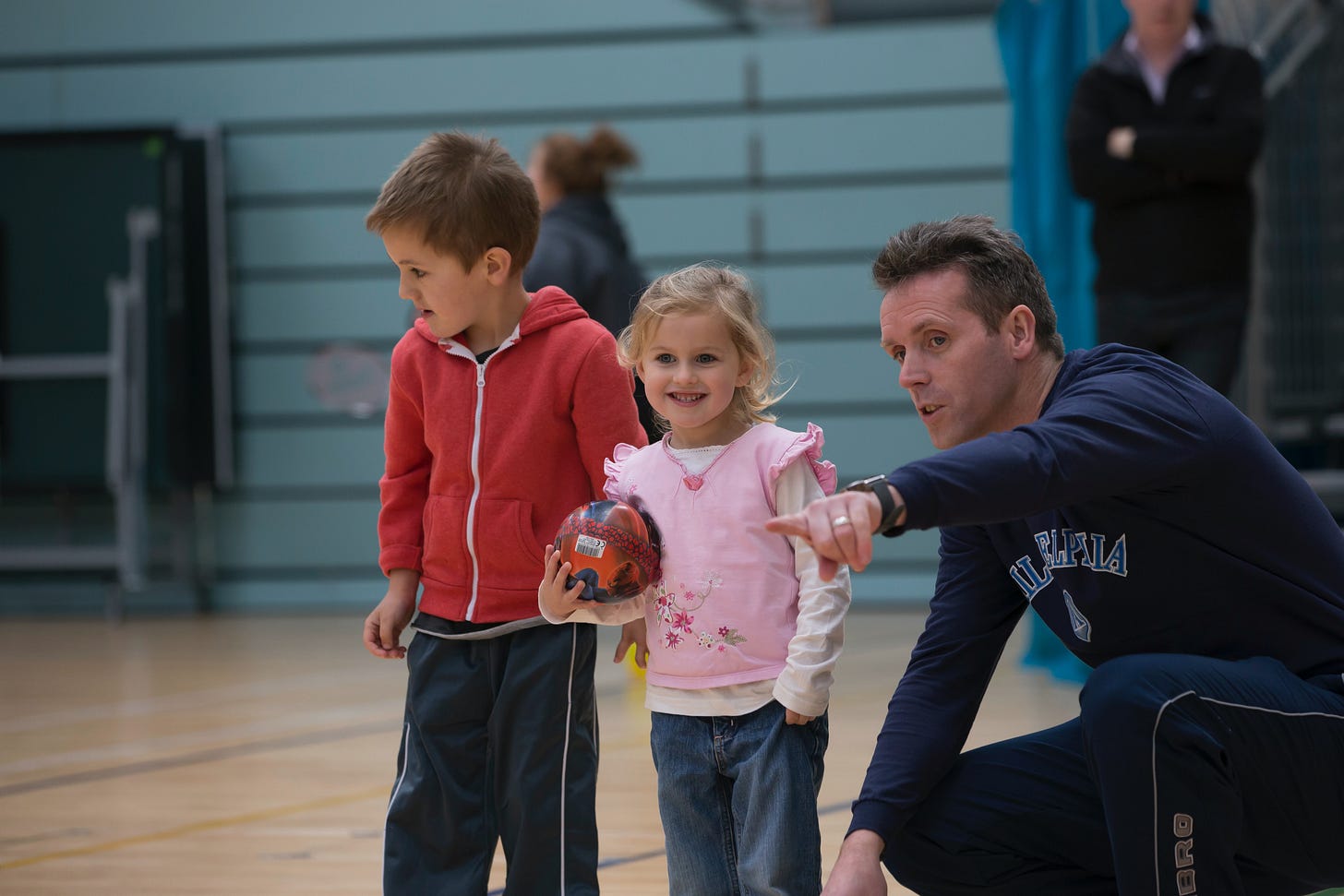Science Tells Us Exercise Can Make Us Better Leaders
The benefits of regular exercise triggers increased ability to deal with stress, affects our energy, better ability to focus,
The Physical Movement is committed to providing the most current and best resources for us all to be better leaders.
Coaches, educators, officials, administrators, parents and, of course, athletes all have leadership opportunities through sports.

Photo by Danny Nee on Unsplash
The youth sports climate has developed a lot of focus around tactics and skills, but is falling short around full development. Development does not just include tactics and skills. As we realized in our discussion with Matt Young (published July 26 here) this is a small part of the total development picture.
If we dig deeper, we realize that the regular physical activity component of youth sports brings with it a lot benefits not often addressed or fully explored.
Even further, those same benefits apply to supporting the emotional well being and decision making ability of non-athletes.
Those in leadership positions who make decisions every day.
That includes you and me.
The Physical Movement has partnered with AthleticOver40 to create a Couch2coach program to help those of us in leadership positions with strategies for their own self-care.
We preach it don’t we? Strong self-care allows us to lead better.
The physical benefits of regular activity are well documented.
The mental benefits, well they seem to be less well understood.
Why would we say that?
Because the large % of our population is in poor health.
There have never had higher rates of obesity, depression and anxiety in our society.
The Physical Movement relies on referrals as our fuel.
If you find this article valuable, please share and refer.

We have leaders in every community. Those who have committed to leading others across various sports and disciplines. Whom have invested their time and energy to introducing fun, skills, discipline, perseverance and practice. Whom have taught the values of teamwork, commitment, competition and overcoming adversity.
The Physical Movement will connect you with some of these leaders, and share findings from others so we can be at our best.
From this article on worldwide obesity rates :
Roughly two out of three U.S. adults are overweight or obese (69 percent) and one out of three are obese (36 percent). Obesity rates are higher in non-Hispanic Black, Hispanic, and Mexican American adults than in non-Hispanic White adults.
Obesity rates in Canada are not quite as high as they are in the U.S., but Canada has seen similarly-dramatic increases over the past three decades. In 1979, 14 percent of Canadian adults were obese. By 2008, 25 percent of adults were obese, and 62 percent were overweight or obese. (11) Obesity is also more common among Canada’s Aboriginal population than it is among other groups: Surveys from 2007-2008 find obesity rates of 25 percent among Aboriginal groups who live outside of reservations, compared with 17 percent in non-Aboriginal groups.
When we talk youth sports, we are talking about programs catering to those on the field of play.
What about the rest of us who support youth athletes?
How and what are we doing?
More and more of the research is now telling us that regular exercise can help us be better leaders.
When things happen that we don’t plan (also known as the sports environment), stress often elevates. We want the best for our athletes, and when things do not go our way, we feel it.
This affects our ability to lead: Research shows that sustained, chronic stress can cause leaders to become uncertain, unmotivated, and turn their focus towards themselves rather than their teams. Which of course makes sense. No matter how mentally strong you might be, still: Everyone reacts emotionally, especially to things that feel outside their control. But what you can control is how you respond -- and neuroscience shows that aerobic exercise has a "profound ability to lower anxiety levels," both in the moment and for hours later.*
We found that exercise helps to buffer the effects of emotional exposure.
If you exercise, you'll not only reduce your anxiety, but you'll be better able to maintain that reduced anxiety when confronted with emotional events.
We can provide more examples:
Stress effects how efficiently we breathe. Regular exercise improves our efficiency in processing oxygen.
Yep: The fitter you are, the better your body can cope with stress.
The dots start to connect.
Here is the big question:
What can we do? How do we address?
1. Build some activity into our daily routine.
2. Tap into the power of aerobic and/or interval training. The benefits are astounding.
Resource: what does research say on interval training?
3. Build some strength training into your daily routine. We can do a lot armed with a strong why + knowledge. Our the Athleticover40 couch2coach program supports you that way.
Resources here:
10 ways to build strength with push ups
Simple ways to keep your legs strong
We speak to our athletes and community all the time about developing leadership skills.
It is time of us, as leaders to look in the mirror, care of ourselves and be consistent with our message.
Here is the latest article around neuroscience and leadership.
*https://www.inc.com/jeff-haden/neuroscience-reveals-exercise-can-make-you-a-better-leader.html
Additional articles from The Physical Movement around exercise, and HOW to build into our lives:
More on Brain Science and Exercise and impact for coaches and educators from The Physical Movement.
There has never been a more important time to get ourselves and our kids moving.

below courtesy of Athleticover40.com
More resources on HOW to build exercise into our lives.
From our Couch2Coach program:



